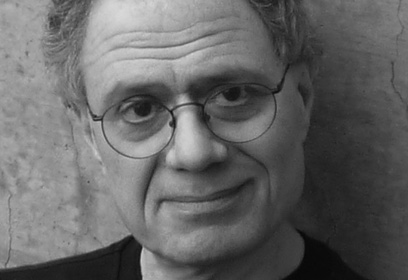A few weeks ago, I sat down with George Scialabba, essayist, book reviewer, and “gradualist radical.” We talked about For the Republic (Pressed Wafer, 2013), his latest collection of essays—and how he keeps his day job from swallowing him; what’s terrifying about the horizontalist tendencies of the hive mind; and why he’s always revisiting the titular question of his 2009 collection, What Are Intellectuals Good For?
—Lindsey Gilbert

Lindsey Gilbert: I’ve heard it said that there aren’t a whole lot of independent scholars and thinkers left—either they’ve been swallowed by the academy or given up and started blogging about their cats. Except you, you’ve been called an independent scholar, haven’t you? What does that mean?
George Scialabba: I have been miscalled, I think. I certainly don’t consider myself a scholar. In fact, I mostly read magazines. But an independent thinker—well, if it’s true, it’s because I have a day job [at Harvard]. The day job is a mixed blessing, of course. It’s dull, but it’s undemanding. It swallows half my time, but it doesn’t swallow my imagination, my reserves. I do feel lucky that I fell into a job like that; just as I owe some of my independence to rent control in Cambridge, I owe some of it to the fact that Harvard has a good union, at least for my kind of employees, clerical and technical workers. But I really worry about whether my good fortune is replicable for someone starting out with the same aspirations.
LG: Why is that?
GS: It’s all laid out very well and presciently by Russell Jacoby in The Last Intellectuals. It’s about why the kind of intellectual that flourished in the thirties, forties, and fifties is a dying breed. That sounds a little bit nostalgic, but it’s just that the situation is less and less tenable. There’s no cheap urban real estate, it’s hard to survive without a regular salary, and academia has become professionalized in a way that it wasn’t in the thirties and forties. It’s making independence harder and harder. I don’t think anybody’s engineering it consciously, but it almost seems as if there’s a Geist of capitalism—or at least that all of capitalism’s characteristics are converging toward a situation in which everybody, both the overlords and the underclass, is overworked and overstressed, and doing routinized and banal kinds of work.
LG: What does that mean for the generalist? The death knell?
GS: Yes. It’s true that knowledge is constantly expanding. A lot of it is useless knowledge, but even useful knowledge, even in the arts, is expanding. In the thirties, if you were particularly smart or audacious, you could be an expert—maybe not on the level of a Meyer Schapiro or Harold Rosenberg, but still an expert. But it’s not really possible to be the kind of generalist that the New York intellectuals were now. Expertise has become not only more difficult to acquire in the general sense, but also more of a requisite. Back in the middle of the twentieth century, literary intellectuals commanded the prestige and authority to make political pronouncements. Now, by and large, they don’t. Jonathan Franzen writes critical grand salvos about the culture. No one would take him seriously if he tried to write about American foreign policy.
LG: Why is that? Why does no one take Jonathan Franzen seriously?
GS: People would say now, as they wouldn’t then, What’s his expertise? What’s his background? Nobody asked that about Camus. Nobody said, Well, has he interviewed all of the relevant policymakers? Has he read all of the secondary literature? Novelists had the moral authority because the issues seemed less obscured by a fog of conventional wisdom.
LG: I saw that you had a spirited exchange recently on Crooked Timber. About Franzen and “sexist dillweeds,” I believe. What happened there?
GS: Like everybody, I suppose, I enjoy seeing things satirized and ridiculed, except when I don’t. And in this case, it started off with a discussion of Jonathan Franzen’s essay on Karl Kraus and contemporary culture. One of the bloggers said something like, “I think Franzen’s problem is that he wants to be the great male novelist of our time. And I have to say that I haven’t been able to read great male novelists for more than half a century. I think they’re all sexist dillweeds, and it’s just impossible unless you’re a sexist dillweed to enjoy their books.” I demurred.
LG: So say you’re reading a nonfiction book—a book of cultural criticism. It advocates the most egalitarian of principles in the strongest of terms. It is well written and convincing. Later you find out the author has maybe a) spent his weekends with the Westboro Baptist Church, and once picketed the funeral of Matthew Shepard, or b) is a tyrant at home, and has been convicted of domestic abuse, or c) donates money to white supremacist groups, or d) otherwise rejects egalitarian principles in his or her day-to-day life. Would that knowledge of the author’s life change what you thought of the author’s book?
GS: Well, no. It would, of course, change what I thought of the author. But it wouldn’t affect the review, I’m pretty sure. Not even if it were a book advocating feminism and I found out that he really was a sexist or worse. If the book itself were an eloquent, compelling defense of feminism, I would cheer it on.
LG: Is there a distinction to be made here between fiction and nonfiction?
GS: Not to a book reviewer. In the Crooked Timber discussion, we got to talking about Saul Bellow. Some people were saying, “Really, how can anyone think Herzog or Augie March, is a great novel, when the women characters are just there for the man to feel betrayed by, or impressed with his flair?” Well, yes, that’s an aspect of the book, and I’m glad that feminism has made me notice that kind of thing. But that doesn’t mean that in Augie March Saul Bellow didn’t practically invent a whole new prose style for American fiction. So yes, they have flaws, but I’m still capable of enjoying the books despite those flaws.
LG: This has something to do with the old saying that thinkers or scholars can’t be activists, or with the lingering idea that art and politics must remain opposed. How have you taken up that debate in your own work?
GS: My best thoughts about it are in the title essay of What Are Intellectuals Good For? I still think any politics have to be invested with moral imagination, and the moral imagination in our culture is, if not most profoundly, then most influentially and resonantly expressed in the Bible, in Shakespeare, and in nineteenth-century novels. They’re a kind of academy. I was going to say treasure house, though its not as though we know what to look for and go to them and find those things in a kind of useable form—it’s that we are led through them at an age when our moral imaginations are being formed. They’re a superior kind of pedagogy; they touch chords deeper in one’s psyche than most other experiences from which one might learn moral lessons. So, in that sense, they’re profoundly political. The Sermon on the Mount is I think where socialism starts. It’s thrilling rhetorically and morally as well.
My idea of the end of the world would be the hive mind. Nobody is able to just sink deep into his or her own imagination or feelings.
But on the other hand, my heroes, the people I dedicated that book to, the people we need at the moment, are the waders, the people who wade into the facts, the details, in a way that I myself have no inclination to do. Chomsky, Nader, Greenwald, I. F. Stone, Alexander Cockburn. That’s useful. That’s where political arguments ought to be decided. But what side you join to begin with, what side you join the political argument from, I’d say depends a lot on your early literary exposures.
LG: Is it okay for a social critic or thinker to identify a problem but not offer a solution? Right now in the United States, do we have more problem-flaggers than solution-generators?
GS: I once heard Chomsky say that Americans tend to come up after talks and ask, “What should we do?” while in Central America and India and the Caribbean, they came up and said, “This is what we’re doing, what do you think?” For myself, I’ve decided that the best form of political activity is writing book reviews.
LG: From each according to one’s own ability. . .
GS: Yes. But you know, you just have to start where you are. The genius of the system is that it’s infinitely easier for people at the top to coordinate than for the atomized, isolated, and insecure citizenry to coordinate. That’s part of why business so consciously and relentlessly destroyed unions. Because they knew that unions were almost a prerequisite for any large-scale political organization among the 99 percent, many decades before it was conceived of as the 99 percent. And it’s why they took over National Public Radio, because a lot of people just talked to each other on the train, in the office, at the coffee machine about things they heard, and they had discussion boards on National Public Radio, and people could write in and find other people . . . that had to be stopped.
The only president who kept Ralph Nader in his good books was Jimmy Carter. It was just a couple years after he’d written Unsafe at Any Speed, which was the zenith of his prestige and authority. So he had Carter’s ear and formulated for him a proposal for a department of consumer protection, and it got within an ace of being passed. But the U.S. Chamber of Commerce just wouldn’t hear of it, and lobbied furiously against it . . . and it just missed. But that would have been another way for isolated citizens to learn that lots of other people felt the same way they did, and to have some way of contacting them and organizing themselves.
It’s hard, but that’s how political change has to start. Of course it can start any number of ways. Eventually there may be some Barack Obama figure who really means it, and when he gets into office and learns it’s going to be harder than he thought, won’t just roll over. So leaders are important, and grassroots action is important, and book reviews even are important. Wherever one is, whatever one can do.
LG: Apropos of nothing then, do you think there’s something inherently conservative about book reviewing or criticism?
GS: Yes, I do, because books are one of the things that are in need of conservation. Anyone for whom books have been an important part of life is likely to feel that their survival can’t be taken for granted. So yes, in the sense that being a conservative is, as William F. Buckley once defined it, standing athwart history and shouting, “No!” Of course, Buckley was saying no to racial equality, and sexual equality, and progressive taxation. That was his idea of the end of the world.
My idea of the end of the world would be the hive, the hive mind. Sven Birkerts has a wonderful description of how the horizontal, linked world is gradually evolving in that direction, to where nobody is ever really alone, nobody is able to just sink deep into his or her own imagination or feelings, the constant pressure of the horizontal connections keeps you from descending below a certain depth. If he’s right about that, it’s the end of individuality as I’ve known it and come to admire and treasure it. And it may be that people who haven’t had the formative experiences I’ve had will find it perfectly satisfying, and that I don’t have the imaginative resources to either pity or envy them. Their experiences may fall beyond my comprehension.
LG: For you, is the rise of the hive mind tied to the decline of the book?
GS:Yes. Because you’re alone with the book. Other people may be reading it somewhere else, but you don’t know. I mean, you do know that there are people out there, but to read a book, you can’t be paying attention to lots of other things. Things don’t pop up on the page. They do pop up on the screen. And books don’t have hyperlinks, so you can’t run off and forget about the book for a bit.
LG: But they do have footnotes.
GS: They do.
LG: Which can send you down a wiki hole of an entirely different kind.
GS: True, if you’re sitting in a library reading, then footnotes might send you to the stacks. But if you’re sitting at home reading, then you just take notes—I must look that up online or in the library—but still you’re there, in the chair. It doesn’t usually happen that you lose yourself in a book, but it can happen. It’s much harder to lose yourself online, to lose yourself in the sense of losing consciousness of everything else out there in the world. You can lose yourself online in another way, by following one thing after another, moving from one program or platform or site to another so constantly that you lose your focus. But with a book, your focus can be so sharp, so deep, that you can lose yourself in the other, benign sense . . . lose yourself vertically rather than horizontally.
LG: Lose yourself in a good way. Although I do think that the hive mind might be the endpoint of a certain kind of communitarian, utopian vision. Is there anything about communitarianism that appeals to you or tempts you?
GS: Well, I never really did have the communal temperament. I have my little condo, I have my big record collection, my library, and my routines, my habits, all of which I’m very attached to. So no, I am not a prime candidate or any kind of candidate for that kind of utopia. I guess the two best utopias I’ve found so far, that I can imagine being happy with, fitting into, that don’t rouse any prickles of resistance to me, are Edward Bellamy’s Looking Backward and Ernest Callenbach’s Ecotopia.
LG: And what appeals to you about those?
GS: Well, Looking Backward is a techno-utopia. But it really is technology in the service of life. People work a few hours a day, and the entire technology is designed to maximize individuation, to give everyone the most possible opportunities to indulge their every creative impulse.
It’s a completely egalitarian society in the sense that there isn’t a hierarchy of privilege, except of course that real differences—real hierarchies of skill, judgment, and experience—are respected, and people who have larger projects that the community has democratically deliberated on will have more resources. It takes more resources to experiment with a new energy-generation technology or a new housing design than to write a novel. The whole society is designed to give everybody the resources they need to follow their inclinations. And technology figures crucially in that. It takes for granted increasing technical progress.
Ecotopia is also friendly towards technology, but Callenbach was one of the great environmentalists of the 20th century, and he really saw how a sustainable society could be affluent, and laid it out in extraordinary detail in that book. It was virtually self-published; it had only a small cult following – as far as I know, I wrote the only review of it. But I think it’s politically astute and technically plausible. I would defy anyone to say otherwise.
To a hammer everything looks like a nail, and to a disgruntled leftist everything is capitalism’s fault and inequality’s fault.
LG: In For the Republic you mention in the course of discussing the electoral college that “many practices that now seem patently indefensible once seemed perfectly natural to most people”—the divine right of kings, for example, or child labor. What dinosaur will be next to fall? Which of today’s naturalized practices will we be appalled to remember one hundred years from now?
GS: Well, inequality obviously. It always comes down to unnecessary suffering. I just can’t believe that people in the 25th century are still going to believe this garbage about not coddling the poor. What is it that Paul Ryan said, “The safety net is becoming a hammock, Americans are becoming dependent”? If anybody says that without general ridicule immediately descending on them a hundred or two hundred years from now, I’ll be pretty darn surprised.
LG: Do you consider yourself a radical?
GS: Well, I like the word. I like it better than progressive. But although I’m a radical, I would be perfectly happy with a non-radical measure like Obamacare. Millions of people will be able to get a check up, a physical, more than once every five years or so. There are an awful lot of people hurting very badly, so anything that helps I’m happy with. I’m a gradualist; I’m not a revolutionary. I think it’s essential to talk about structures and constraints and class. Exactly what non-radical journals like The New Republic and the Atlantic don’t do. The whole young generation of writers they’ve spawned—Ezra Klein, Jonathan Cohn, Jonathan Chait—are all very smart. But their focus is rather narrow. And their moral imagination is really on leave. I like them better than I like whoever their conservative counterparts are, but I’m also frustrated that they can be wholly absorbed by the details of the political process, the pros and cons of Dodd Frank. So, gradualist and radical, that’s how I think of myself.
LG: There’s an essay in the book called “Message from Room 101”—after George Orwell’s Room 101 in 1984—about writing (or not writing) with depression. Where is this piece coming from?
GS: To a hammer everything looks like a nail, and to a disgruntled leftist everything is capitalism’s fault and inequality’s fault. I had, not an obsession exactly, but a constant fear of being impoverished in my middle age. There was one time when my job changed entirely—well not entirely, but basically my job started involving software. I had been on email, but I hadn’t had to master any office software to do my job, and I thought if I couldn’t, then I’ll lose my job and I’ll never got another job and I’ll just sink into the abyss. So I fell into this depression. And I kept thinking, if we had socialism, there would be other reasons to get depressed but not exactly my current reasons. I’m sure the larger causes were my neurotransmitter imbalance or whatever, physiological conditions. But my immediate demons were a result of the system of wage labor, private property, competition, inequality. So when I got better and was able to read and write and think again, I hadn’t forgotten. And I guess I wanted to salvage something from this lifetime of personal clinical depression.
LG: You write that according to Camus, the soul is not only a philosophical problem, but also, from a depressive’s point of view, a political problem. Can you say what you mean by that?
GS: I mean that economic insecurity is stressful. It was obvious enough before we had the technology to measure it, but now it’s actually been proven by double-blind studies. And it’s also clear that whatever the contributing causes of depression, one of them is almost always stress, life stress. So, it just seems a no-brainer that if we could eliminate one large source, one very widespread source of serious stress for many people, than we would be slightly better protected from depressive illness. And of course the reason why economic security is not universal is wholly political.
LG: Can I end with a broad question: With apologies to Orwell, why do you write?
GS: It started when I discovered Noam Chomsky. I heard him mention that he was coming out with a big book in a few months, and I thought, in the first flush of my enthusiasm, wow this is really going to take the culture by storm. Anyway, it didn’t get single review for months and months. So I wrote a review, put it in the mail to the Village Voice and said, “Look I’m not a writer, I don’t expect you to publish this review, I wrote this just for you so you would know this book is worth reviewing,” and the books editor called me back and said, “Are you sure you’re not a writer? Anyway we’re going to publish your review, and by the way, we’d like you to write another one.” So that’s how I started, just a fluke really. Then, you know, you just kind of get to liking seeing your name in print.
It’s also because I am too lazy to be an activist, and I do have these political emotions. It keeps me from just choking on them, and it also allows me to avoid getting out and expending any actual physical energy on political organizing. So it serves a lot of functions.
What did Orwell say anyway?
LG: He said a combination of sheer egoism, aesthetic enthusiasm, historical impulse, and political purpose, but in the end everyone is vain, selfish, and lazy, with a demon behind them, and some mysterious impulse is the ultimate driver.
GS: Exactly, couldn’t have put it better.







